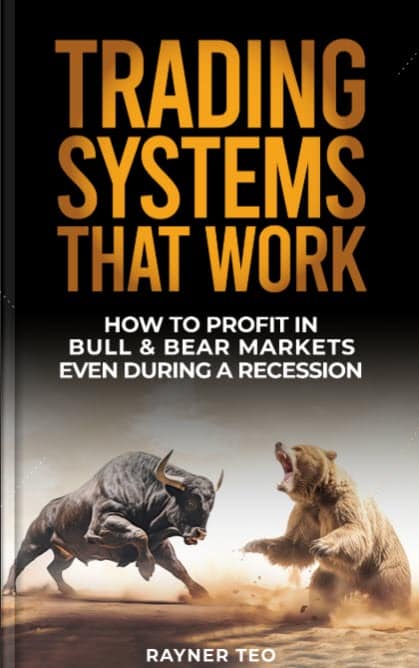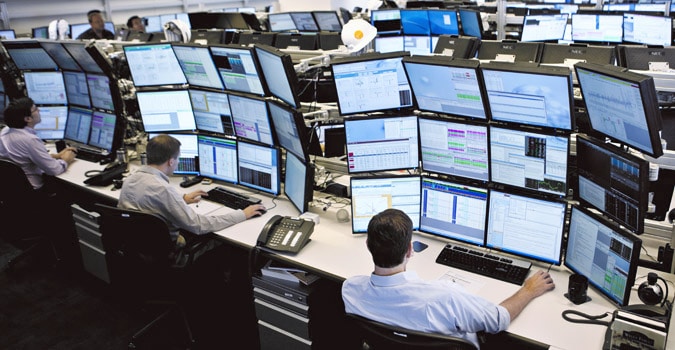Fast money, insurmountable losses, swollen egos and sleepless nights. Welcome to the world of proprietary trading.
I am sure many of you have a burning question like what do proprietary traders do exactly, what they trade, how much they make, how can I be one of them and more…
Well.. I have great news for you! Because in this article I will give you an insight into what proprietary trading is all about and what it means to be a proprietary trader.
What is proprietary trading?
Prop trading involves traders taking speculative positions across the financial markets to earn a profit. We are not brokers or dealers, thus we do no earn a dime from commissions.
What is the difference between a proprietary trading firm and a hedge fund?
Proprietary trading firm trade with the firm’s capital only whereas a hedge fund will raise capital from investors and manage it for them.
Thus proprietary trading firm does not need to answer to any clients or investors.
What do proprietary traders trade?
We are mainly involved in the futures market as it is on a centralise exchange and has low transaction cost.
What are the requirements to join a proprietary trading firm?
Passion for the financial markets and how driven you are. A degree is a basic requirement but not an essential one. I’ve seen traders get into prop trading with a Diploma qualification.
Will they teach me how to trade?
Basic fundamentals of trading will be taught (like cutting your losses etc) after which the rest will be entirely up to you.
You have cost to cover
This is the only industry I know that requires you to cover your own cost. Your desk fees (basically the rental of the office space divided among traders), subscriptions like Bloomberg, TT, newsfeed etc.
What is the remuneration like?
Most firms offer a small allowance followed by a profit sharing scheme (if you do make a profit after costing). However, there are also firms that do not offer any allowance and adopt only a profit sharing scheme. Profit sharing are usually paid out on a quarterly basis.
What if I have losses?
Losses will be borne by traders and keep rolling over. E.g. In January you lost 10k, February you lost another 5k, in March you need to make back 15k to breakeven.
However should you decide to leave the firm after incurring losses, the firm will absorb it and you need not pay a cent. Unless you traded recklessly then the firm may choose to pursue their losses from you.
What are the working hours?
Expect to work 12 hours a day or more in the first year of trading. I do know of traders working 16 hours a day even though he’s been trading for 10 years. That’s how competitive it is.
Will I be a successful trader if I join a proprietary trading firm?
Out of every 10 traders that join a firm only 2 will make it (and I’m being optimistic about it). The attrition rate is one of the highest across industries.
How much money can I earn?
This is entirely up to you. I’ve seen traders becoming millionaires before the age of 30 and others who struggle and finally quit after couple years.
Do I need to know anything about trading?
The learning curve is extremely steep thus I suggest reading and learning as much before applying for this job. However, I do know of firms that require applicants to have no prior trading experience. It’s an irony I know.
How much time will I be given to learn?
You have typically anywhere between 6 months to a year. If you break the rules since day 1, you wouldn’t last a week.
Is there an age limit?
From what I see, they usually hire traders below 35.
I heard traders have no dress code?
Yes, you are pretty much right. I have a colleague who goes to work in shorts and slippers.
Conclusion
And there you have it! The cold hard facts of what proprietary trading is all about. It is not a rosy picture many paints it out to be. If you have an obsession for trading, then you may stand a chance in this industry.
If you want to join proprietary trading because it’s cool to tell people you’re a trader, please don’t waste your time and effort. Why? Because you probably won’t have the mental tenacity to see through your struggling period and the motivation to get better each day.
But for those who have an obsession for the financial markets and loves pushing themselves to the limits, then you may be interested in getting a job in proprietary trading.
So, what are your thoughts on proprietary trading?
Do you know the 5 Secrets of trend following that makes it profitable over the last 200 years? In my FREE trading course (valued at $48), I reveal to you what are the 5 secrets, and how it can improve your trading immediately.
You can download it here for FREE.




That sounds great and scary.
How much is the total cost like desk, subscription etc. Why they charge for all of this where they are giving money to trades.
What are the advantages to be proprietary trdaer.
How much money company can provide to trade.
What is the percentage of profit sharing.
Do you have to go the office or you can trade from home.
The costing typically range from 2k – 4k, depending on the amount of subscriptions you have.
The advantage being a prop trader would be independence and self reliance on no one but yourself. The sky is the limit in terms of profit potential.
Most prop firms would start you off with a small risk tolerance. E.g. Losing no more than X amount a day. When you get better the amount increases.
Percentage of profit sharing varies between firms, naturally the better you are the higher they offer.
We typically go to office but there are experienced traders who does it from home.
Hi,I’m curious as to why would one want to join as a proprietary trader as opposed to trading for himself,given that the former has more cost involved (2 – 4k subscription cost). It’s also more stressful trading the company’s money and having to answer for the loss.
For starters,
1) It’good environment to be in as you will be watching the markets everyday.
2) You will sitting beside traders who trades for a living thus guiding you to profitability quicker.
3) You will be given limits to trade. Which are probably larger than your own retail account.
However if you are already trading successfully and have a large account size, then there’s no need to join a firm.
Rayner
Interesting topic here.
when you said 2k – 4k subscription for Month, is it in SGD ?
Man, some firms we dont get paid for this job, and only profit sharing, and we still have to pay that 2k – 4k SGD? That’s a lot of money
Hi tjenarvi,
Yes it’s in SGD.
That’s how a typical proprietary trading firms work.
But if you can’t cover your expenses, most firms won’t insist you in repaying them should you decide to leave.
Rayner
Are you prop trader, Ryan?
Interesting in this career vs individual trader by the way.
Hi tjenarvi,
I was a prop trader but have left the industry sometime back.
Rayner
Hi, Rayner,
Thank you for all your videos and post about trading, it was really helpfull for me to increase my knowledge in trading.
I am from Semarang, Indonesia and I trade stock in Indonesian Stock Exchange (IDX) and micro account in Forex.
Recently, a company has been offering me a Remote Proprietary Trading Job. I am quite interested about that, but there is something that I want to ask you, because you have been a Prop Trader before. With that company, I have to pay 1,450 Euro in advance, to be able to join their Remote Prop Trader. They said the money will be used for Legal Addmision Fee, Execute Trader, Chat Sessions etc. Is that a normal procedure ?
Thank you for your attention
Hi Andre,
I will be cautious about any company asking for an upfront fee.
Furthermore, it’s remote proprietary trading.
Rayner
Hi Rayner,
Thanks for the insightful post but I have a question to ask.
Does the proprietary trading firms allow their traders to hold positions for days and even over the weekends? As long as risk management is good and stop loss is put in place.
I like the idea of becoming a proprietary trader just that i don’t find it profitable scalping and sometimes i find it stressful too.
Thanks
-Dimas 🙂
Hi Dimas,
For starters they usually start all traders with scalping the lower timeframes. As the trader progress, he can trade other timeframes and approach.
Hi Rayner,
What are your thoughts on online prop trading? I’m considering to join one of them as the prop trading firms in SG have not responded to my applications.